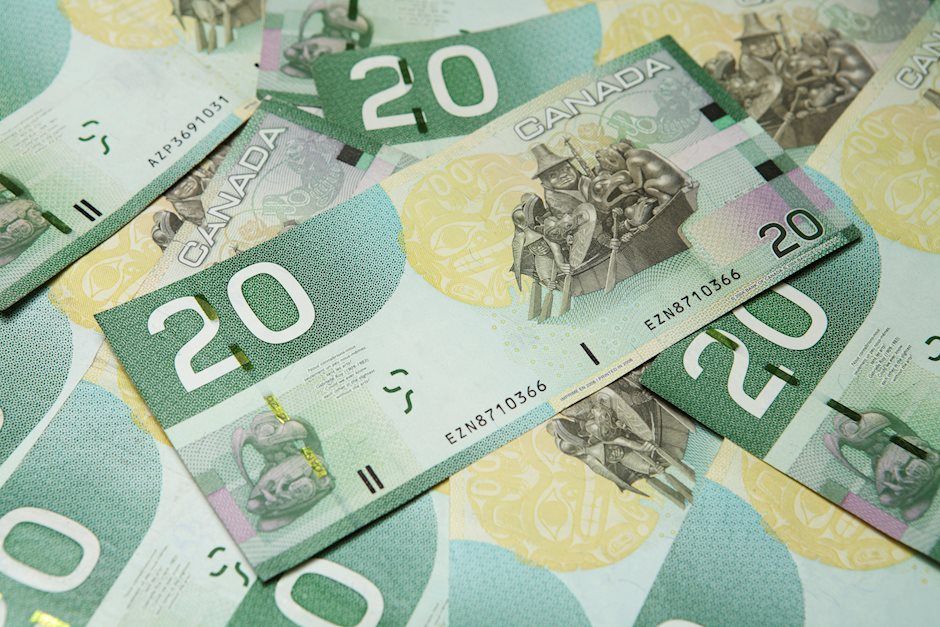USD/CAD holds steady above 1.3800, BoC cuts rate again in July
- USD/CAD trades on a flat note around 1.3805 in Thursday’s early Asian session.
- The BoC decided to cut the key interest rate to 4.5% at its July meeting on Wednesday, as widely expected.
- The flash US manufacturing sector saw a decline in July, while services business activity Index hit a 28-month high.

The USD/CAD pair trades flat near 1.3805 during the early Asian section on Thursday. The downside of the pair might be capped after the Bank of Canada (BoC) reduces its key borrowing rates again on Wednesday, which drags the Canadian Dollar (CAD) lower. On Thursday, investors will keep an eye on the advanced Gross Domestic Product (GDP) for the second quarter, followed by Durable Goods Orders and weekly Initial Jobless Claims.
The Canadian central bank cut its benchmark interest rate by 25 basis points (bps) to 4.5% on Wednesday, as widely expected by the markets. The BoC governor Tiff Macklem said during the press conference that it would be reasonable to expect further rate cuts if inflation continues to ease in line with the forecast. Financial markets expect one more 25 bps rate cut this year, with a nearly 53% odds that the BoC will cut rates again in its September meeting.
Meanwhile, the extended losses in crude oil prices might continue to undermine the Loonie. Lower oil prices generally weigh on the Canadian Dollar as Canada is the leading exporter of Oil to the United States (US).
On the other hand, mixed US S&P Purchasing Managers Index (PMI) for July and dovish comments from the Federal Reserve (Fed) are likely to exert some selling pressure on the Greenback.
Data released on Wednesday showed that the US S&P Global Composite PMI improved to 55.0 in July from 54.8 in June. Additionally, the S&P Global Manufacturing PMI dropped to 49.5 from 51.6 in the same period, weaker than the 51.7 expected. Finally, the Services PMI rose to 56.0 from 55.3.
Canadian Dollar FAQs
The key factors driving the Canadian Dollar (CAD) are the level of interest rates set by the Bank of Canada (BoC), the price of Oil, Canada’s largest export, the health of its economy, inflation and the Trade Balance, which is the difference between the value of Canada’s exports versus its imports. Other factors include market sentiment – whether investors are taking on more risky assets (risk-on) or seeking safe-havens (risk-off) – with risk-on being CAD-positive. As its largest trading partner, the health of the US economy is also a key factor influencing the Canadian Dollar.
The Bank of Canada (BoC) has a significant influence on the Canadian Dollar by setting the level of interest rates that banks can lend to one another. This influences the level of interest rates for everyone. The main goal of the BoC is to maintain inflation at 1-3% by adjusting interest rates up or down. Relatively higher interest rates tend to be positive for the CAD. The Bank of Canada can also use quantitative easing and tightening to influence credit conditions, with the former CAD-negative and the latter CAD-positive.
The price of Oil is a key factor impacting the value of the Canadian Dollar. Petroleum is Canada’s biggest export, so Oil price tends to have an immediate impact on the CAD value. Generally, if Oil price rises CAD also goes up, as aggregate demand for the currency increases. The opposite is the case if the price of Oil falls. Higher Oil prices also tend to result in a greater likelihood of a positive Trade Balance, which is also supportive of the CAD.
While inflation had always traditionally been thought of as a negative factor for a currency since it lowers the value of money, the opposite has actually been the case in modern times with the relaxation of cross-border capital controls. Higher inflation tends to lead central banks to put up interest rates which attracts more capital inflows from global investors seeking a lucrative place to keep their money. This increases demand for the local currency, which in Canada’s case is the Canadian Dollar.
Macroeconomic data releases gauge the health of the economy and can have an impact on the Canadian Dollar. Indicators such as GDP, Manufacturing and Services PMIs, employment, and consumer sentiment surveys can all influence the direction of the CAD. A strong economy is good for the Canadian Dollar. Not only does it attract more foreign investment but it may encourage the Bank of Canada to put up interest rates, leading to a stronger currency. If economic data is weak, however, the CAD is likely to fall.
Author

Lallalit Srijandorn
FXStreet
Lallalit Srijandorn is a Parisian at heart. She has lived in France since 2019 and now becomes a digital entrepreneur based in Paris and Bangkok.

















